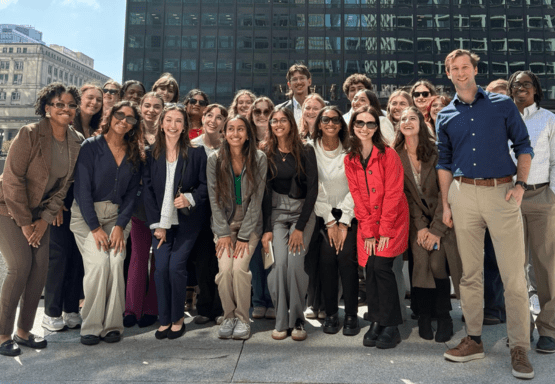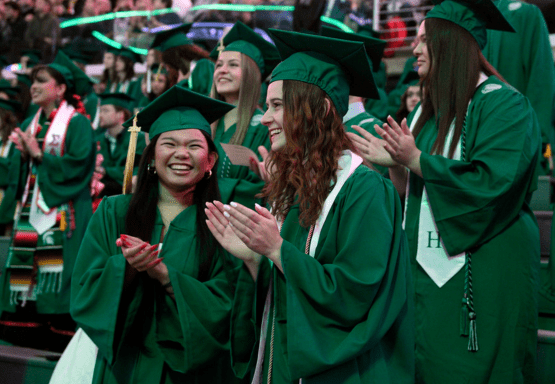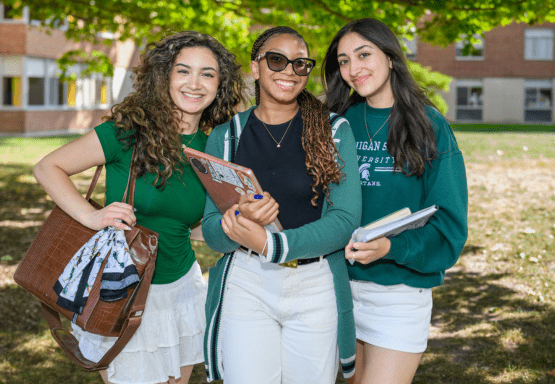This year’s Dr. Martin Luther King Jr. Commemorative Celebration was the university’s 43rd year honoring Dr. King and highlighting why his message and words remain relevant today. Another step toward marking the significance of King’s contributions was observing MLK Jr. Day as a full university holiday, closing all MSU offices for the first time.
Brian Johnson, James Madison College Assistant Dean for Diversity, Equity and Inclusion, co-chaired the MLK Planning Committee and called the celebration “an opportunity to reflect on how to best further Dr. King’s legacy…and continue to advance social justice.”
The start of a weeklong celebration
The celebration kick-off began with the Commemorative Unity Dinner on Jan. 12 in the Kellogg Center, where registered guests enjoyed dinner, entertainment and guest speakers, including keynote speaker LeConté Dill, associate professor of in the Department of African American and African Studies and a research associate at the African Centre for Migration and Society at Wits University in Johannesburg, South Africa.
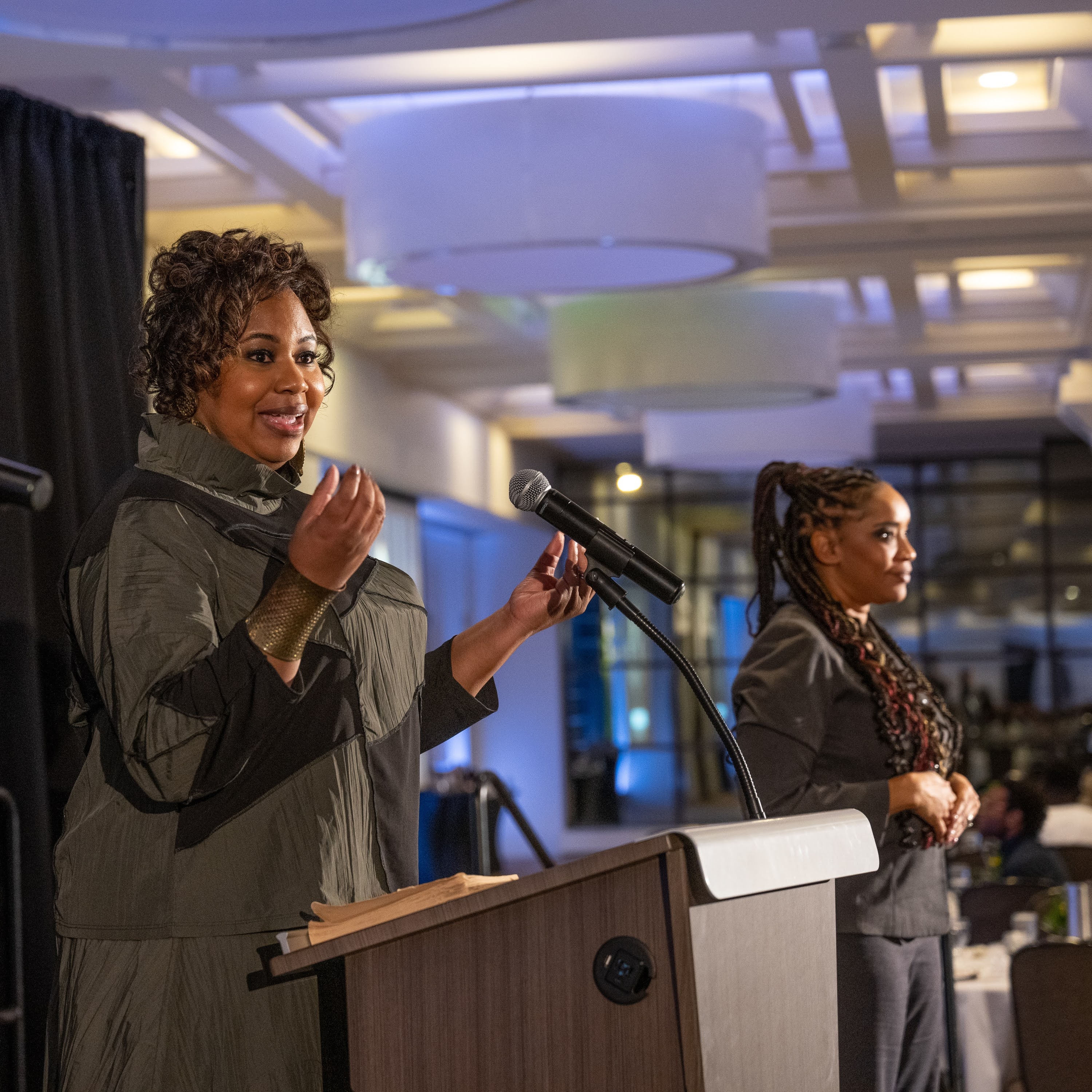
True to this year’s event theme, “Living Purpose, Promise and Perseverance,” Dill’s speech spoke about the dynamics of power and love, different forms of resistance and how reform is needed but “cannot be put on marginalized people to make [what is wrong], right.” Among her most salient points: “Power without love is reckless” and “The King holiday is a day on, not a day off. Be ‘on.’”
Focused on equity-based research
Among the more than 20 campus events scheduled over the course of the week, the 2023 MLK Student Leadership Conference on Jan. 13, provided the MSU community the opportunity to engage in conversations about deficit thinking, the notion that minoritized students fail in school because they possess deficits that interfere with learning.
Mid-Michigan native Kelsie Reed, an elementary school psychologist in Prince George’s County Public Schools — the third largest school district in the Baltimore-Washington Metro Area — and author of the recently published book “Hacking Deficit Thinking,” was the featured keynote speaker.
Reed discussed how deficit thinking is the root of race- and class-based problems in schools, blaming students and their families for failures in schools, rather than systemic inequities. According to Reed, deficit thinking applies to much more than schools, however, because even after the work of Dr. King and the Civil Rights Act of 1964, equity issues continue to persist in all types of institutions.
In order to reframe deficit thinking, Reed recommends a strength-based approach, which includes highlighting students’ strengths rather than weaknesses and putting the needs of students before the needs of state or national standards.
The 6th Annual Diversity Research Showcase was also held on Jan. 13. Ellie Friedman (SRP ‘24) presented her research titled “Implications of a Culturally Responsive Scoring Approach in Writing Assessment: Case Studies of Linguistically Diverse Students in Grades 3-5.” Friedman’s presentation expounded on the research she presented last year.
“Since last year, we’ve been doing a lot of re-coding of our data to connect it more closely to the student demography. We hope to understand not only the difference in scores when we use culturally responsive methods but also who that change is most affecting,” Friedman said.
Mentored by Dr. Adrea Truckenmiller, associate professor in the College of Education, and special education doctoral student Lindy Johnson, Friedman is eager to continue her research. “Our next steps will be informed by new data we are collecting this spring when we go into classrooms across Michigan. We are also working to bring together scholars across disciplines who can work with us to make sure that our work continues to accurately and fully represent the rules of different Englishes,” Friedman said.
Marching to ‘close the opportunity gap’
The MLK Commemorative March on Jan. 16, though not the final event, is one of the most symbolically significant. Hosted by the MSU Zeta Delta Chapter of Alpha Phi Alpha Fraternity, Inc. and the 2023 MLK Student Committee, a group of approximately 70 community members gathered at Beaumont Tower where they listened to remarks from Interim President Teresa Woodruff; Lee June, professor in the Honors College, Department of Psychology, and African American and African Studies Program; and MSU Board Trustee Rema Vassar, the first Black woman to serve as board chair.
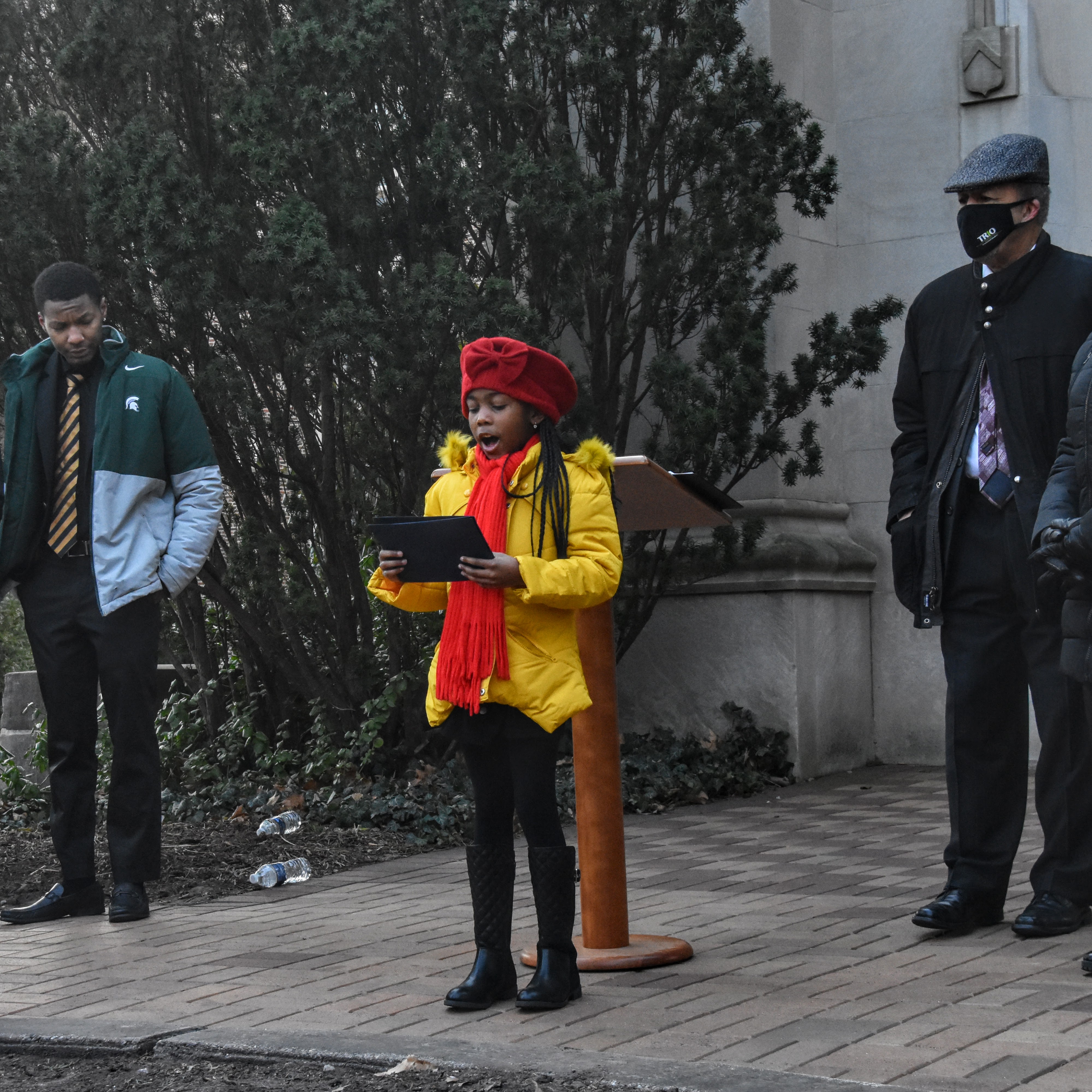
Additional speakers included the great grand-niece of civil rights activist Robert. L. Green. The elementary school student read Dr. King’s “I Have a Dream” speech, dressed in an ensemble that mirrored Inaugural Poet Amanda Gorman’s when she delivered the 2021 Presidential Inauguration poem “The Hill We Climb.”
The Alpha Phi Alpha Fraternity students led the march through campus to the proposed site of the MSU Multicultural Center near Shaw Hall and River Trail. Students from various organizations including the Spartan Housing Cooperative, Sigma Lambda Gamma, Associated Students of Michigan State University and Lambda Theta Alpha, amongst others, carried their organizations’ banners as they marched. Upon arrival and at the march’s conclusion, organization student leaders spoke about the importance of the Multicultural Center.
Speaking on behalf of James Madison College’s W.E.B. DuBois Society, Brooklyn Scott (SRP & CCP ‘23), DuBois Society PR Director, said, “The Dubois Society thinks that these events are important to community building, remembering that the purpose of our organization stems from the very reasons that Dr. King dedicated his life to resisting.”
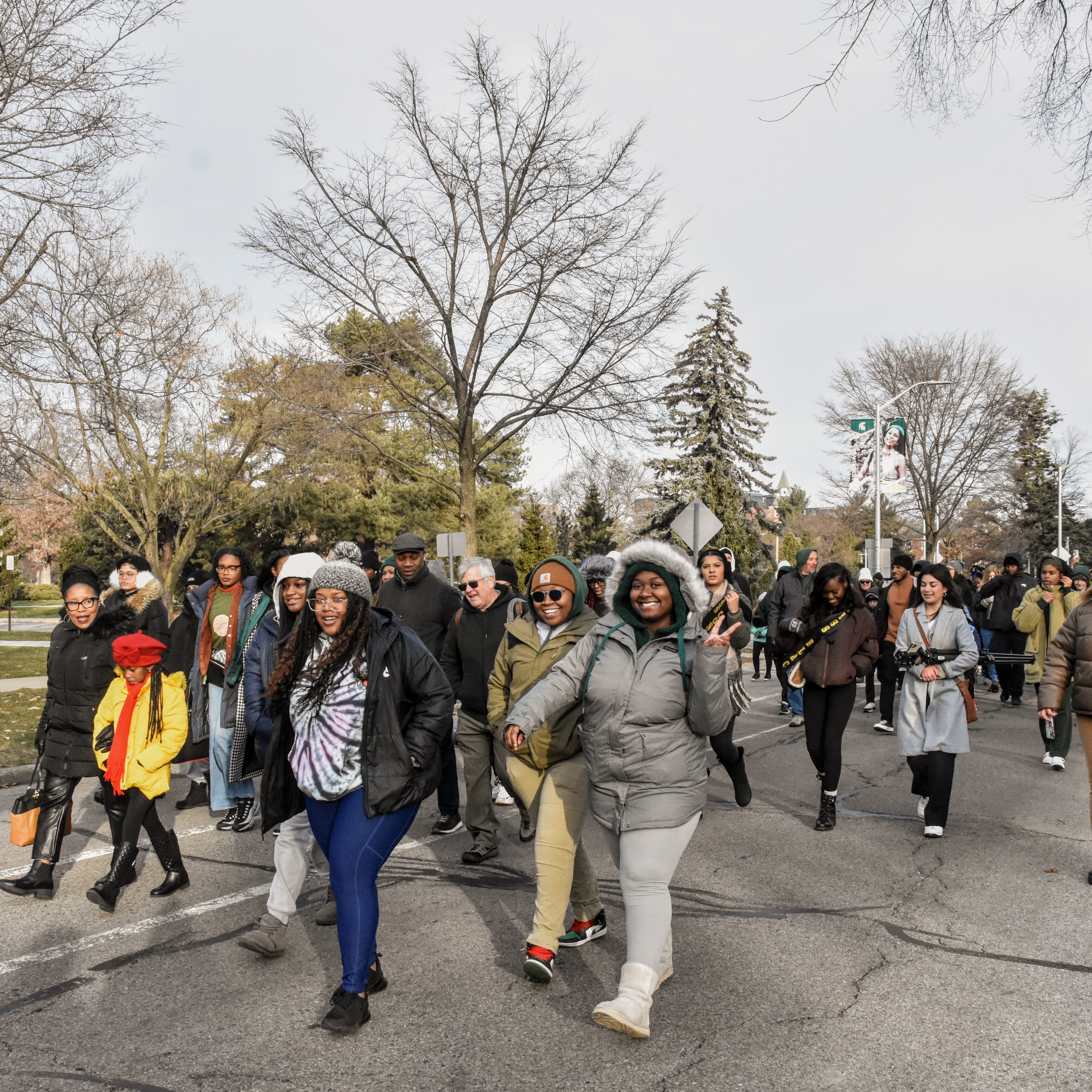

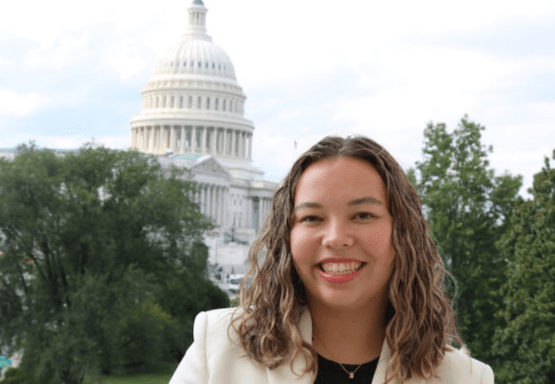

.png?h=384&iar=0&w=555)
